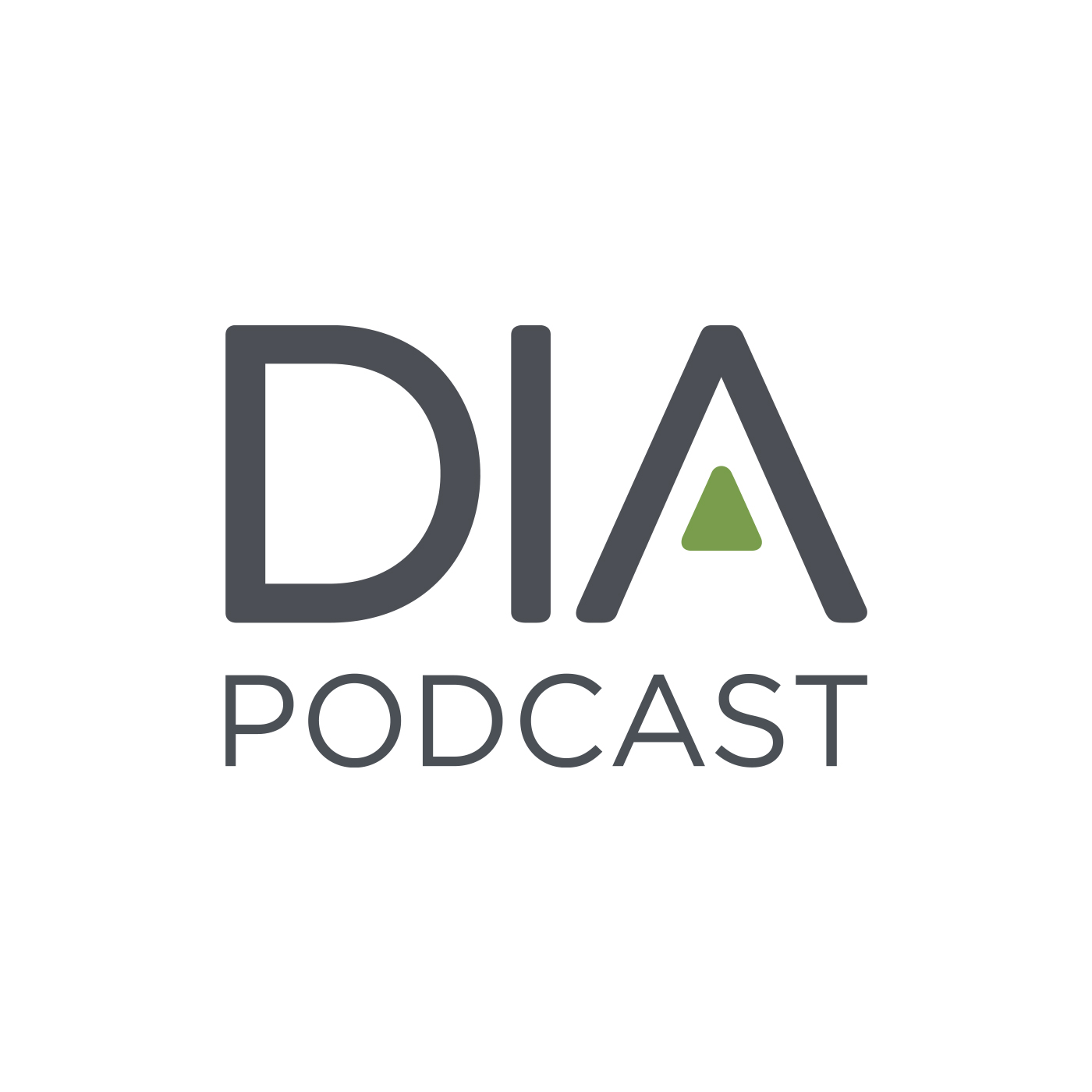
92.7K
Downloads
254
Episodes
DIA is a global, multidisciplinary, membership association of healthcare professionals that works towards the advancement of lifesaving medicines, therapies, and technologies around the world.
DIA is a global, multidisciplinary, membership association of healthcare professionals that works towards the advancement of lifesaving medicines, therapies, and technologies around the world.
Episodes

Thursday Jul 28, 2022
Medication Errors Emerge as Global Patient Safety Issue
Thursday Jul 28, 2022
Thursday Jul 28, 2022
In 2021, the 74th World Health Assembly adopted the Global Patient Safety Action Plan (GPSAP) 2021-2030 towards eliminating avoidable harm in healthcare. “Here in the United States, the Office of the Inspector General reports that one in four Medicare patients suffer harm in US hospitals,” says Sue Sheridan, a founding member of Patients for Patient Safety US, formed to advance this global plan in the United States. “Medication error is a huge global issue,” continues US founding member Soojin Jun in this interview with Mary Stober Murray (National Minority Quality Forum).

Thursday Jun 30, 2022
What We Are Missing by Not Including ”Who?”
Thursday Jun 30, 2022
Thursday Jun 30, 2022
In April 2022, FDA issued new draft guidance on Diversity Plans to Improve Enrollment of Participants from Underrepresented Racial and Ethnic Subgroups in Clinical Trials. Because this guidance applies to all medical products, CDER, CBER, and CDRH all contributed, but this draft was led by Project Equity from FDA’s Oncology Center of Excellence (OCE). “It is important that we be able to evaluate new therapies in the context of a diverse population that will use these medical products because the diseases for which these products are intended present in variable fashion across the population and because populations respond variably to medical products,” explains OCE Project Equity Lead Lola Fashoyin-Aje. “But we should reconsider the question regarding why diversity in clinical trials is important. Because the question really ought to be: What are we missing when trials are not diverse, when the study population in the clinical trial is not diverse? What are the missed opportunities for advancing science or advancing clinical medicine and, ultimately, for driving improvements in population outcomes?”

Wednesday May 18, 2022
Cancer Data Ecosystem Powering Moonshot Relaunch
Wednesday May 18, 2022
Wednesday May 18, 2022
The Cancer Moonshot launched in 2016 with a Blue Ribbon Panel Report featuring 11 recommendations, including creation of human tumor atlases and a national cancer data ecosystem, for improving cancer research and care in the US. In February 2022, the White House announced that the Cancer Moonshot was being reignited. “The ecosystem has vastly improved the efficiency of the nation's cancer research efforts. They're bringing powerful computational methods of vast amounts of data in an organized fashion to enable treatment decisions and prevention,” explains Global Forum Translational Science Editor Gary Kelloff, special advisor to the National Cancer Institute, US NIH. “The ecosystem is complementary to the other efforts and provides the tools and methods to implement this sharing of large amounts of new data that's coming.”

Monday May 02, 2022
Complexity Continues to Challenge Clinical Costs
Monday May 02, 2022
Monday May 02, 2022
In March 2022, the Tufts Center for the Study of Drug Development (CSDD) issued an impact report that examines clinical trial budgets and factors that drive commonly observed variations and cost. “Part of the focus of all of these studies is to understand how complexity, how increased customization in our trials, more fragmentation as we have different parties involved, contributes to longer cycle times and larger budgets than comparable studies when we control by therapeutic area,” explains Tufts CSDD Executive Director and Professor Ken Getz, who also serves as board chair for the Center for Information and Study on Clinical Research Participation. “Not only are we seeing longer timelines today, and larger budgets, but we see more variation around the mean for any of these measures, which means that it's getting more difficult for companies to predict or to anticipate and manage an expected timeline or an expected budget.”

Monday Apr 25, 2022
Maximizing Regulatory Resources Across Latin America
Monday Apr 25, 2022
Monday Apr 25, 2022
While COVID-19 sharpened global understanding of the importance of efficient medicines review and regulation, the Pan American Health Organization (PAHO) has been systematically assessing national medicines regulatory authorities in the Americas since 2010. "It's inevitable that we reflect on what happened during the pandemic but also that we take that as an enormous opportunity to move forward in a way that can take the lessons out of regulation in a time of crisis to prevent crisis," suggests PAHO Medicines Health & Technologies Unit Chief Analía Porrás in this conversation with Susan Zavala Coloma (DIGEMID, Peru) and Global Forum Regional Editor for Latin America Cammilla Gomes (Roche). “The idea of the assessment is not just to showcase what's going well in a regulatory authority but, with the regulatory authority, to decide on the priorities for opportunities for improvement. We gained the trust of our regulatory authorities and our other stakeholders like the industry; with that trust, the authorities know that we're going to push them to be their best.”

Monday Feb 07, 2022
Data Intersections Connecting Drug Development with Clinical Care
Monday Feb 07, 2022
Monday Feb 07, 2022
“The ground is shifting in terms of how we will continue using randomized clinical trial data and real-world data in many different disease settings,” says Veronica Miller, co-author of Use of External Controls in FDA Regulatory Decision Making. In this research article, Miller (Forum for Collaborative Research) and Adora Ndu (Bridgebio Pharma, Inc.) describe where and how FDA has used external controls to support development and approval of drugs for rare and pediatric diseases. “We're seeing, not just in rare diseases but in many other diseases, this coming together of what used to be totally separate silos. In part, that's facilitated through electronic health records and other mechanisms of capturing data and being able to follow data at a bigger level, but also just because of understanding the importance of clinical data.”

Friday Jan 14, 2022
Sharing Cloud-Based Data as They Emerge: Accumulus Synergy Part 2
Friday Jan 14, 2022
Friday Jan 14, 2022
In Part 2 of this interview, Chief Executive Officer Francisco Nogueira discusses the practicalities of data capture, data management, and machine learning within the framework of Accumulus Synergy’s proposed global cloud-based platform for regulatory submissions. “In terms of enthusiasm and shifting to database- from dossier-based submissions, this work had started before Accumulus was even conceived,” he explains. “Many companies already have data lakes in how they gather and collect and house the data that they are working through today. What I'm seeing in the ecosystem, both our sponsors and nonsponsors, is a high level of enthusiasm and high level of engagement towards what we define as data-centricity.” Listen to Part 1 of this interview.

Friday Jan 14, 2022
Sharing Cloud-Based Data as They Emerge: Accumulus Synergy Part 1
Friday Jan 14, 2022
Friday Jan 14, 2022
In January 2021, 10 of the world’s leading biopharmaceutical companies announced the formation of Accumulus Synergy, a nonprofit corporation intended to enable global, real-time collaboration and data exchange and submission between industry and health authorities. “Our aim is to be at the intersection of where those who develop medicines, and those who approve them, can interact differently,” explains CEO Francisco Nogueira. “Our technology will provide the ability for a sponsor to work with as many regulators as that sponsor chooses to in a much more streamlined fashion. We will enable the platform. We will enable it with the know-how and the technology. But ultimately the business rules remain with the business.” Listen to Part 2 of this interview.

Friday Dec 17, 2021
Advanced Tests and Therapies Making Daily Care Anything But Routine
Friday Dec 17, 2021
Friday Dec 17, 2021
Global Forum Co-Editors Gary Kelloff and David Parkinson discuss translational science milestones in 2021 against the backdrop of disruptive technologies advancing disease diagnostics and therapies. “The sensitivity of the diagnostic assays is getting better and better, and so is the analytical validation,” says Gary. “We have now the opportunity with liquid biopsies that allow from 20 cc of blood whole exome sequencing, whole transcriptome sequencing, and therefore deep DNA and RNA interrogation, real biology characterization. And that has fantastic opportunities for drug development, for patient diagnosis and prognostication, but also for the longitudinal monitoring of patients,” concurs David.

Tuesday Dec 14, 2021
Innovation Without Access Will Never Meet Patient Needs
Tuesday Dec 14, 2021
Tuesday Dec 14, 2021
Innovations in therapeutic product development will only be effective when patients can access and use them. But establishing and explaining the value and price of these innovations among so much unmet need, and ensuring access by patients who need them, has proven difficult throughout Europe and elsewhere. “Policymakers more often or too often have a short-term view, short-term perspective, rather than a long-term perspective, and sometimes are driven more by political goals than promoting patient access in a real way,” suggests Andras Incze, Akceso Advisors. “We want the breakthrough innovations to reach patients throughout Europe. We want the best products and to get them to patients as fast as possible,” explains Rick Vreman, Utrecht University, the Netherlands. “But then it gets a bit more tricky when we start to think about what we need to make that happen.”
